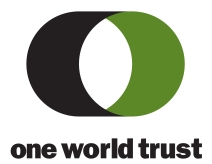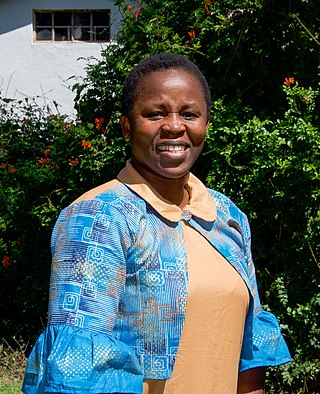Related Research Articles
As an ethic that spans science, engineering, business, and the humanities, transparency is operating in such a way that it is easy for others to see what actions are performed. Transparency implies openness, communication, and accountability.

The International Commission of Jurists (ICJ) is an international human rights non-governmental organization. It is a standing group of 60 eminent jurists—including senior judges, attorneys and academics—who work to develop national and international human rights standards through the law. Commissioners are known for their experience, knowledge and fundamental commitment to human rights. The composition of the Commission aims to reflect the geographical diversity of the world and its many legal systems.
The International Federation of Library Associations and Institutions (IFLA) is an international body representing the interests of people who rely on libraries and information professionals. A non-governmental, not-for-profit organization, IFLA was founded in Scotland in 1927 with headquarters at the National Library of the Netherlands in The Hague. IFLA sponsors the annual IFLA World Library and Information Congress, promoting access to information, ideas, and works of imagination for social, educational, cultural, democratic, and economic empowerment. IFLA also produces several publications, including IFLA Journal.
JUSTICE is a human rights and law reform organisation based in the United Kingdom. It is the British section of the International Commission of Jurists, the international human rights organisation of lawyers devoted to the legal protection of human rights worldwide. Consequently, members of JUSTICE are predominantly barristers and solicitors, judges, legal academics, and law students.

The One World Trust is a charitable organization that promotes education and research into changes required in global governance to achieve the eradication of poverty, injustice, environmental degradation and war. It develops recommendations on practical ways to make powerful organisations more accountable to the people they affect now and in the future, and how the rule of law can be applied to all.
An international non-governmental organization (INGO) is an organization which is independent of government involvement and extends the concept of a non-governmental organization (NGO) to an international scope.

North Macedonia is a signatory to the European Convention on Human Rights and the U.N. Geneva Convention relating to the Status of Refugees and Convention against Torture, and the Constitution of North Macedonia guarantees basic human rights to all citizens.

The United Nations Department of Economic and Social Affairs is part of the United Nations Secretariat and is responsible for the follow-up to major United Nations Summits and Conferences, as well as services to the United Nations Economic and Social Council and the Second and Third Committees of the United Nations General Assembly. UN DESA assists countries around the world in agenda-setting and decision-making with the goal of meeting their economic, social and environmental challenges. It supports international cooperation to promote sustainable development for all, having as a foundation the 2030 Agenda for Sustainable Development and the 17 Sustainable Development Goals (SDGs) as adopted by the UN General Assembly on 25 September 2015. In providing a broad range of analytical products, policy advice, and technical assistance, UN DESA effectively translates global commitments in the economic, social and environmental spheres into national policies and actions and continues to play a key role in monitoring progress towards internationally agreed-upon development goals. It is also a member of the United Nations Development Group.
The Croatian Helsinki Committee for Human Rights is an organisation founded to protect and promote human rights in Croatia. It was founded on 31 March 1993, initially as a branch of the International Helsinki Federation and latterly as a member organisation of the Helsinki Committee for Human Rights. Since 14 April 2003, the organization has functioned as a local NGO under Croatian law and is supported by independent academics, journalists and professionals dedicated to protecting and promoting human rights in the country.
The International Aid Transparency Initiative (IATI) is a global campaign to create transparency in the records of how aid money is spent. The initiative hopes to thereby ensure that aid money reaches its intended recipients. The ultimate goal is to improve standards of living worldwide and globally reduce poverty. The IATI also publishes a standard to be used by organizations, allowing different datasets to be combined and shared.
The Kunan Poshspora incident was an alleged mass rape that occurred on 23 February 1991 when unit(s) of the Indian security forces, after being fired upon by militants, launched a search operation in the twin villages of Kunan and Poshpora, located in Kashmir's remote Kupwara District. The residents of the neighbourhood stated that militants had fired on soldiers nearby, which prompted the operation. Some of the villagers claimed that many women were raped by soldiers that night. The first information report filed in the police station after a visit by the local magistrate reported the number of women alleging rape as 23. However, Human Rights Watch asserts that this number could be between 23 and 100. These allegations were denied by the army. The government determined that the evidence was not sufficient and issued a statement condemning the allegations as terrorist propaganda.
Publish What You Fund is a global campaign for aid transparency– more and better information about aid.
Accountable Now is a global platform, founded in 2008 by a group of independent non-profit organisations, which is intended to foster accountability and transparency of civil society organisations (CSOs), as well as stakeholder communication and performance. It supports CSOs to be transparent, responsive to stakeholders and focused on delivering impact.
The Bahrain Independent Commission of Inquiry (BICI), also known locally in Bahrain as the Bassiouni Commission, was established by the King of Bahrain on 29 June 2011 tasked with looking into the incidents that occurred during the period of unrest in Bahrain in February and March 2011 and the consequences of these events.
Samuel Awuku Okudzeto is a Ghanaian politician and lawyer. In 2011, he was chair of the International Advisory Commission of the Commonwealth Human Rights Initiative and a member of the Commonwealth Lawyers Association. He is a former Member of Parliament in Ghana.
The Ain O Salish Kendra (ASK) (Bengali: আইন ও সালিশ কেন্দ্র (আসক); Centre for Law and Mediation) is a non-government, a national legal aid and human rights organisation in Bangladesh. It is one of the leading human rights organizations of the country and is highly active in issues of legal and social support to the dis empowered, particularly women, working children and workers as well as exposing human rights abuses by Bangladeshi security forces. It consults with Amnesty International and with the United Nations Economic and Social Council (ECOSOC). The centre was established by prominent Bangladeshi lawyers and activists in 1986. Md Nur Khan acts as the executive director since August 2022.
The Republic of Uruguay is located in South America, between Argentina, Brazil and the South Atlantic Ocean, with a population of 3,332,972. Uruguay gained independence and sovereignty from Spain in 1828 and has full control over its internal and external affairs. From 1973 to 1985 Uruguay was governed by a civil-military dictatorship which committed numerous human rights abuses.

Corruption is endemic at every level of Liberian society, making Liberia one of the most politically corrupt nations in the world. As such, corruption is not specifically a punishable crime under Liberian law, which further exacerbates the nature of corruption present in the country. When President Sirleaf took office in 2006, she announced that corruption was “the major public enemy.”
The Rwanda Access to Information law (AIL) was written in October 2009 and put into effect with some revisions four years later, on February 8, 2013. The Prime Minister of Rwanda Paul Kagame ordered to publish the law in the official gazette on 11 March 2013, officially making the country the 11th country in Africa and 94th country globally to adopt an Access to Information law. The Rwanda AIL provides a comprehensive framework for access to information in Rwanda. The purpose of the law, as declared in Article 1, is to “enable the public and journalists to access information possessed by public organs and some private bodies.” The legislative project has been praised by Article 19, a British human rights organisation as one of the best access to information laws both in Africa and globally, and recognised by the Commonwealth Human Rights Initiative as “a signal of government’s intention to entrench transparency and enhance public participation in governance.”

Tapiwa Nyasulu-Rweyemamu, is a Malawian diplomat, Social Scientist, women-rights activist, anti-corruption activist and academic. Tapiwa currently leads Women and Gender Policy and Development at the African Union. Before joining the African Union, Tapiwa was Regional Advisor for Southern Africa at Transparency International where she managed and implemented the Africa Regional Anti-Corruption Programme.
References
- ↑ "DIRECTOR-IN-CHARGE". www.humanrightsinitiative.org. Retrieved 3 April 2022.
- ↑ Commonwealth Human Rights Initiative (CHRI) Archived 31 August 2007 at the Wayback Machine , Commonwealth of Nations , accessed on 10 October 2007
- ↑ "International Advocacy and Programming". www.humanrightsinitiative.org. Retrieved 7 December 2021.